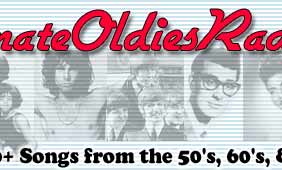 |
 |
 |
 |
 |
 |
|
[ Back to the listing ]
[ Post Reply ]
[ Help ]
[ Search ]
[ List All Forums ] |
|
Subject: RE: Publishing Music |
|
Well, from my limited (and I stress limited) experience of re-issuing, (and the last one I did was ten years ago when a radio outlet I worked for decided to bring out a 60s compilation), labels usually have an advance based on a minimum pressing figure - in some cases this can be as low 10,000 units although the bigger labels tend to start at 20,000 unts and work upwards. (To confuse the problem - you might end up with 20 tracks on a CD - half of them licensed on the 10,000 run rate - half of them on the 20,000 run rate!). Anyway, fees vary, but a figure of 10 cents per unit is considered quite good (we were quoted from 10 to 20 cents per track). On a 10,000 threshold, this means an initial investment of at least $ 1,500 per track if you can get it at the lowest rate and lowest run threshold, or $4000 per track based on a 20,000 minimum run at the higher rate. Some are flat fees - you pay upfront and if you do not sell, that's your problem. Sometimes, you can purchase alternate takes from the same session for much less than that and some labels seem to have two versions available - one the 45rpm version as we heard it on radio, and the second, an alternative take. (Recently I heard an interesting Ricky Nelson compilation which contained tracks exactly like the original - but minus the background vocals - so exactly like the original were they that I am convinced they were not alternates - simply that the backing vocals had been surgically removed!). Anyway, on top of the basic cost, you then of course have to add the mechanical royalties, and the songwriting royalties. (These have to be covered simply because any one of them can refuse permission for a release to go ahead if they are not happy). These can add beetween $ 700 to $ 1400 per track, so if you want to put together a CD with let's say 20 tracks, you could be talking $ 40,000 per CD on a 10,000 run, and from $80,0000 upwards on a 20,000 run, and that is before you press anything. Recently, I saw figures for a 22 track re-issue CD, and the licensing was $ 102,000 - to which had to be added the costs for pressing, printing, distribution etc. Sounds high, but of course, once you sell above the threshold, you are in clover, and subsequent royalties are going to be lower. The problem is getting over the threshold. The initial cost is what puts many re-issue specialists out of business early on. You have to be dead sure of your initial sales. It also explains why many of the import reissues are so expensive - and also why so many end up in bins at a few dollars each - when sales fail, any return is better than none! If I remember rightly, reissue labels have a far higher failure rate than original product labels, but I have always felt that the reissue labels which do best are those "clibs" like Readers Digest, which have a sort of built-in market they can depend on, or labels which have good relationships with Fan Clubs etc., so that there will always be a guarantee minimum sale. As regards what you get - usually, this involves handing you over what they (laughingly) call a "standard production master" (or what we Irish might refer to as a "bog standard" master). If you require a vault search for a better master, they may do this, but there may either be a hefty fee or a higher royalty. John wrote: "However, if I want to license several songs, they may give me a discount and not even charge me for one (this is why I sometimes see "Courtesy of XXXX Records", on some CDs); I just have to give them credit". Jim replies: I have never heard of this but it could be correct. Some labels could not care whether you acknowledge them or not, but others do insist on an acknowledgment of their ownership as well as their royalty and this usually is in the form of a "Courtesy Warner Brothers" type of thing, but that does not necessarily mean that the re-issuing label got it for free however. Your suggestion that somebody might "find" in a garage sale, an alternate take by the same act from the same session is interesting, but most catalogue purchasing deals are done on what is called a "blanket contract" basis, so if something was recorded at a time while the act was under contract, then it would legally belong to the proprietary label, even if they never even knew it existed. That is why a label can often prevent the release on another outlet, of material privately recorded by a singer (and even paid for by him), if at the time of the private recording, that singer was still under contract to the label in question. (Remember the story of Bobby Darin and "Rinky Dink"?) The whole joke is that right now, in the UK, I can legally take any track I like, recorded prior to April 1959, and release it without anybody's permission, as long as I pay the royalty due to the songwriter - and that royalty is not due upfront, but based on sales. So I could put together (and dozens of small little operators are right now doing it) a 20 track CD for basically the cost of pressing and printing! A few days ago, I bought a span-new "All The Hits Of 1958" eight CD pack (206 tracks), for $ 13.00 - with magnificent liner notes, 48 page colour booklet, the lot. But for how much longer? |
|